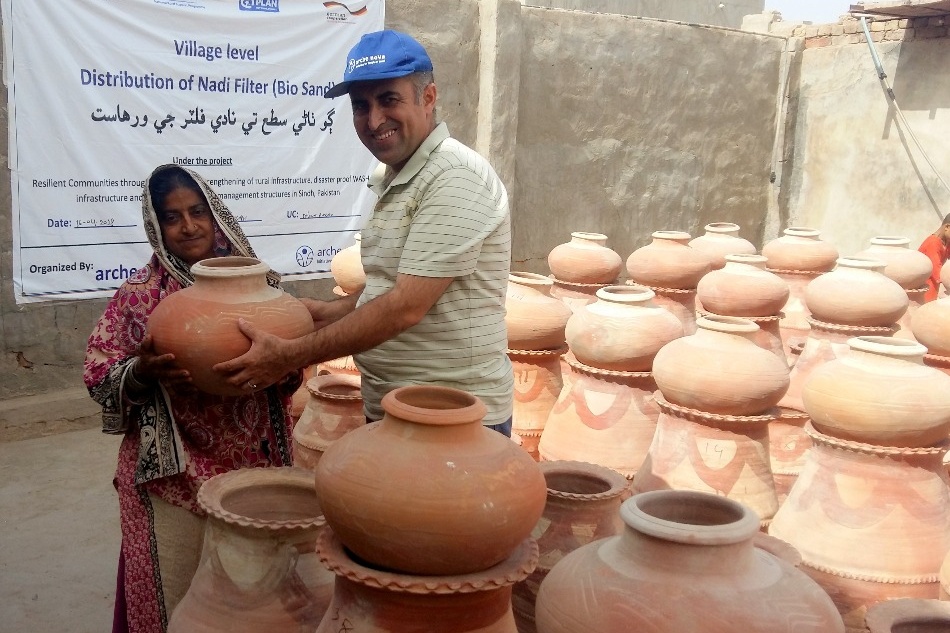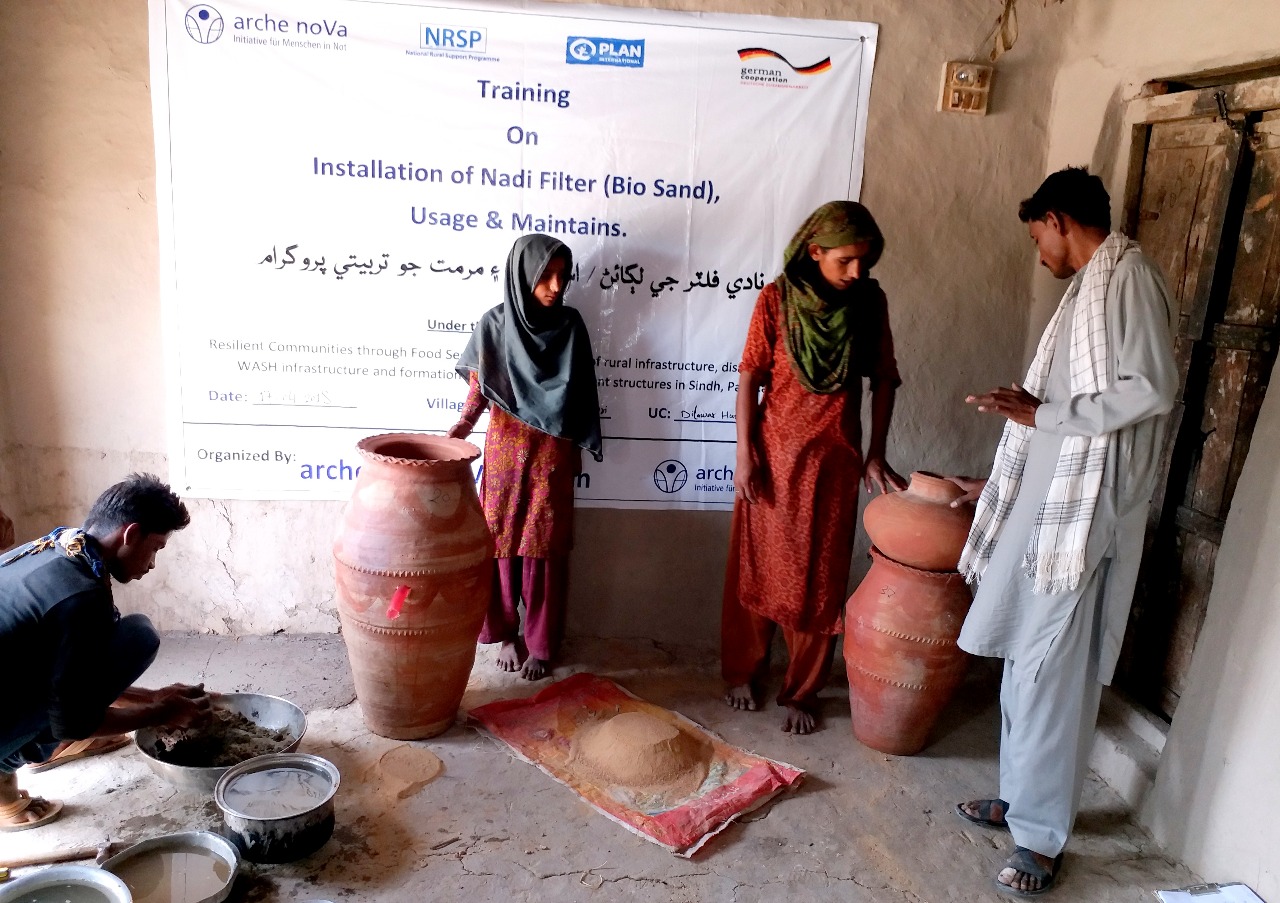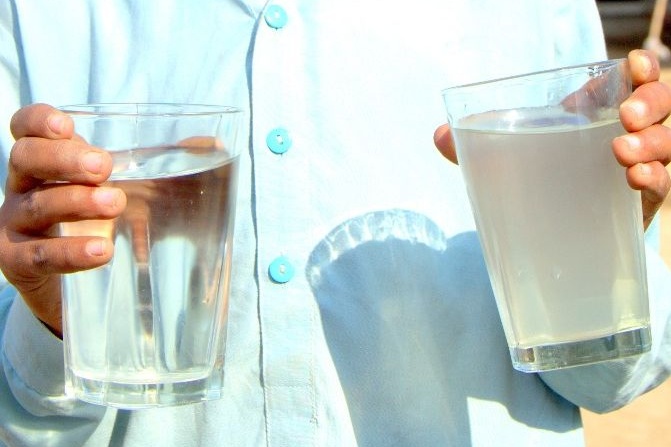The biosand filters in traditional clay pots clean contaminated water without the use of chemical clarifiers. They are in use at locations with surface water which chemically fits the norms for drinking water, but is mechanically and biologically heavily polluted. This is the case only in selected villages close to irrigation channels. The water contains suspended solids, mud, fine sand, further solid contents and some kinds of bacteria or germs that can be filtered out with the biosand filters. To do so they have to be handled correctly though.
In workshops the filters are being built
That is why we not only distribute ready to use filters, but invite the people to workshops where they learn the technology behind the biosand filters and demonstration objects will be built. Subsequently the families receive clay pots and material to construct their own filters along with guidance and supervision by the arche noVa team. Those are applicable for daily use as soon as the desired biofilm has formed on the top layer.
Layer by layer the water becomes clearer
The Nadi filters were developed in Pakistan and are simple and effective at the same time. They consist of local material and work without any energy input. On top of the actual filter there is a first clay pot which is filled with the starting water. From there it is automatically trickles to the filter. At first it meets a four centimeter thick sand layer, on which a so-called „dirt layer“ forms. In this biofilm the desired anaerobic bacteria cultures disintegrate organic particles in the water, which are part of the pollution dangerous to human health. This first sand layer has to be always moist for the biofilm. It saves a part of the water and guarantees the first mechanic cleansing. More layers made of rock, pebble and sand follow. Step by step, the water loses its turbidity. The clearer it is, the better. Dangerous germs mostly stick to floating particles and very rarely occur freely in the water. The clear water eventually is collected in a second clay pot.
Use and maintainance are a mere child’s play
The families in the project communities gladly accept this easy way of water treatment, as they can prevent diarrhea and other diseases with it. They pay close attention to the right use and realise when the throughput gets smaller or the water changes smell and taste. Then the filter is depleted and the top 15 centimeters of the layers have to be changed. When the whole filter is heavily soiled, a complete exchange is necessary. Since their owners have built their filters all by themselves and every material is available on-site, it is a mere child’s play for them. So the system is efficient and very sustainable.
Secure water is urgently needed in Sindh
Central water supply systems are nonexistent in our project region in Sindh. The region is semi-arid and so there are nearly no natural surface waters. That is why the only available sources for drinking water left are groundwater or the water from the irrigation channels. In some villages there is no efficient possibility to reach for drinkable ground water – partly it is too salty, soiled by industry and agriculture or simply technically not reachable. Here the heavily contaminated water from the irrigation channels is the only chance to get to the valuable liquid. The inhabitants of those villages helped themselves by filtering the water with towels so far, but many suffered from diarrhea and other water-related diseases. In this case the Nadi filter mean an enormous improvement of the drinking water situation.















